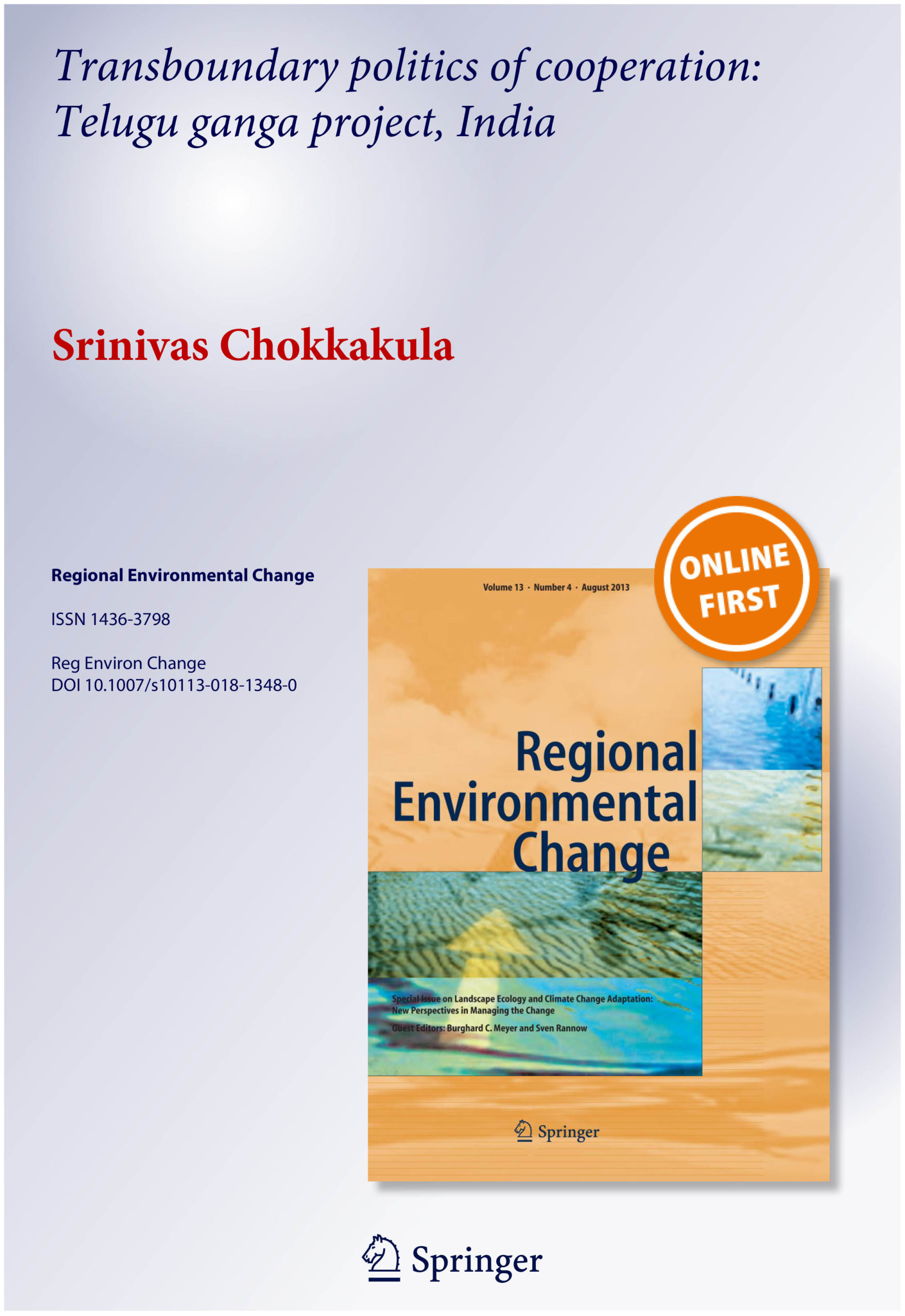About the talk
The Telugu Ganga project in India supplies the Krishna river waters to meet drinking water needs of the Chennai city in the state of Tamil Nadu, a nonriparian state. This has happened through an unusual historic accord between the riparian states of Maharashtra, Karnataka, and Andhra Pradesh. The instance is often celebrated as the finest example of interstate river water cooperation in the history of independent India. This paper presents an alternative and a more complete and critical appraisal of interstate cooperation in the Telugu Ganga project focusing on transboundary political interactions to offer the following findings. One, the case of Telugu Ganga project showcases how and why cooperation and conflict coexist in transboundary water sharing. The celebrated interstate cooperation has turned into a source of conflicts eventually and is connected to the current shape and the state of the Krishna river water dispute. Two, it reveals a nexus of water provisioning politics and mainstream party politics in its making, and its subsequent contentious history. This nexus is a challenge to inter-basin transfer across territorial boundaries—an important drought coping mechanism. This challenge defines the character of politics of cooperation and conflict resolution in federal democracies, such as India. Three, India’s interstate river water governance suffers from dormant policy space and absence of institutional models for interstate river cooperation. This makes it ill-equipped to address the adverse implications of politics or to channelize for progressive outcomes of cooperation. At a broader policy level, India has to reconsider its excessive reliance on dispute resolution, and shift its focus to enabling cooperation for a better governance of its interstate
